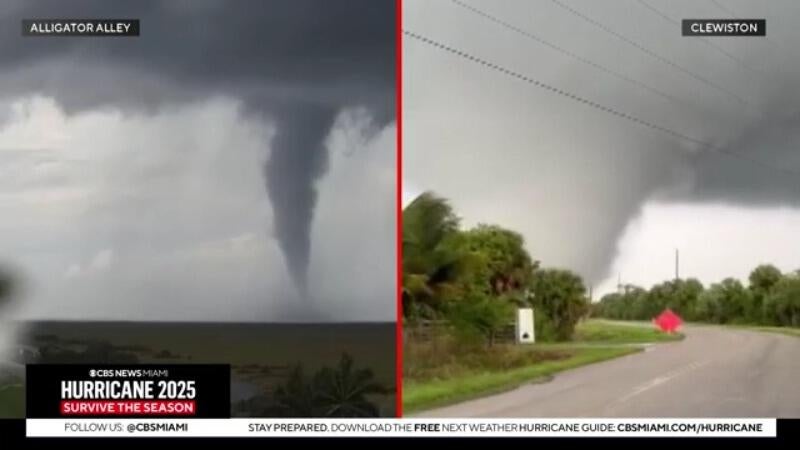Florida homeowners urged to review insurance before hurricane season as options grow, premiums drop
As hurricane season approaches, South Florida residents like Daniel Benjamin and his wife, attorney Lindsey Abbondandolo, are taking steps to protect what matters most: their homes.
On a quiet night in May, the couple sat in the dining room of their Cooper City home for what they call an "insurance check-up" — a review of their homeowners insurance to ensure their policy was up-to-date before hurricane threats rise.
"The home is our biggest asset," said Abbondandolo, who handles insurance cases professionally. "Our home has everything we own in it, so protecting it should be our biggest priority."
Florida's insurance landscape improves
Despite three hurricanes — Debby, Helene and Milton — hitting Florida in 2024, the insurance market in 2025 is showing signs of improvement. According to Mark Friedlander, spokesperson for the , more insurers are entering Florida's market, making coverage more affordable and competitive for consumers.
"There are many new insurance companies coming to Florida and writing in South Florida, something we haven't seen in years," Friedlander said. "Florida consumers have more choices this year."
The shift is largely credited to recent legislative reforms aimed at reducing insurance fraud, particularly involving roof claims and excessive litigation. As a result, more than a dozen new companies have started writing policies, many absorbing customers who previously relied on Citizens Property Insurance, the state-run insurer of last resort.
"Citizens has reduced their exposure by 50 percent over the last two years," Friedlander said. "A healthier private market means new companies are now willing to take over Citizens' policies through the depopulation program."
Smart shopping and flood protection
Benjamin and Abbondandolo compared policy options and found better rates with a company offering discounts for features like leak detectors, impact windows, a new roof and a clean claims history. But they also made sure to have sufficient flood insurance, which is typically not included in standard hurricane policies.
"Even if it's a hurricane, you need flood coverage because the type of damage can be caused by rising water, which is not covered by windstorm insurance," Abbondandolo said.
Friedlander echoed that sentiment, emphasizing that flood risk in South Florida is constant.
"If you live in South Florida, you're going to be prone to flooding," he said. "Whether it's a spring storm or king tides, you're always going to have a flood event throughout the year."
The encouraging news for homeowners is that multiple insurers are now writing flood policies, often at competitive prices — another reason for residents to review and update their coverage before the storms arrive.




